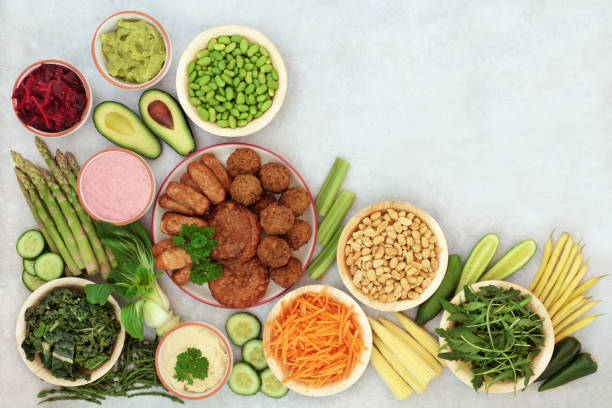
Vegan, Vegetarian, or Flexitarian: Which Diet is Best for You?
Share
With an increasing number of people becoming conscious of their health, environmental impact, and ethical choices, diets like vegan, vegetarian, and flexitarian have gained tremendous popularity. Each of these diets offers unique benefits and challenges, but they all share the common goal of reducing animal product consumption. So, how do you choose the best diet for your lifestyle? In this article, we'll break down each diet, helping you determine which one aligns best with your health goals, values, and preferences.
The Vegan Diet: A Compassionate Lifestyle Choice
A vegan diet excludes all animal products, including meat, dairy, eggs, and even honey. This lifestyle is rooted in ethical considerations and environmental concerns, with the goal of preventing animal suffering and reducing carbon emissions associated with animal farming. Vegans typically consume a variety of plant-based foods, such as fruits, vegetables, grains, legumes, and nuts. While veganism can be incredibly rewarding, it requires careful planning to ensure balanced nutrition, as it can be challenging to get sufficient amounts of protein, vitamin B12, iron, and omega-3 fatty acids from plant-based sources alone.
The Vegetarian Diet: A Flexible Approach to Plant-Based Eating
A vegetarian diet is similar to a vegan one but allows for some animal-derived products, such as dairy and eggs. Vegetarians focus on plant-based foods, while incorporating dairy and eggs for additional protein and nutrients. This diet can be more flexible and easier to follow than a vegan diet, as it allows for a wider variety of food choices. However, like veganism, vegetarians need to pay attention to getting enough of certain nutrients like protein, iron, and calcium, which may require supplements or fortified foods.
The Flexitarian Diet: Balance and Moderation
The flexitarian diet is essentially a more relaxed version of a vegetarian diet. Flexitarians primarily focus on plant-based foods but occasionally include animal products in their meals. This approach is perfect for those who want to reduce their meat consumption without fully giving it up. The flexitarian diet is flexible, allowing for more variety and less restriction, making it easier for people to maintain in the long term. It also offers health benefits, such as weight management and lower risks of chronic diseases like heart disease, while still providing the nutritional benefits of plant-based foods.
Health Benefits: Comparing Vegan, Vegetarian, and Flexitarian
All three diets can offer significant health benefits when followed correctly. Vegan and vegetarian diets are rich in fiber, vitamins, and antioxidants, which can help prevent chronic conditions like heart disease, diabetes, and certain cancers. These diets are also often lower in calories and saturated fats. On the other hand, the flexitarian diet strikes a balance between plant-based and animal-based foods, which can be easier to stick to and may promote long-term sustainability. Studies show that flexitarians also enjoy lower risks of obesity, heart disease, and diabetes compared to those who eat a more traditional omnivorous diet.
Challenges and Considerations for Each Diet
While all three diets offer health benefits, they also present challenges. Vegan and vegetarian diets require more careful planning to ensure proper nutrition, especially for essential nutrients like protein, B12, iron, and calcium. Those on a flexitarian diet have the advantage of flexibility but may still struggle with maintaining a predominantly plant-based lifestyle. Regardless of which diet you choose, it’s essential to do your research, possibly consult a nutritionist, and pay attention to your body’s nutritional needs to avoid deficiencies.
Ultimately, the choice between vegan, vegetarian, and flexitarian diets depends on your personal health goals, ethical beliefs, and how much flexibility you want in your meals. If you're ready to make a full commitment to reducing animal products and are willing to plan your meals carefully, veganism or vegetarianism may be right for you. On the other hand, if you’re looking for a more balanced, moderate approach, the flexitarian diet might be the perfect fit. Whatever you choose, the key to a successful and sustainable diet lies in making informed, mindful decisions and enjoying a variety of nourishing, plant-based foods.
Get more knowledge about eating healthy, please refer to Mediterranean Vegetarian Cookbook.
